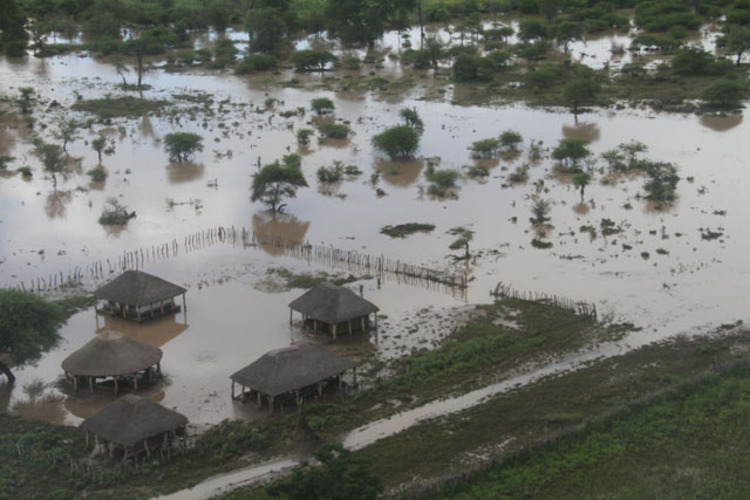
The Sunday Mail

Vincent Gono in Bulawayo
The tale of communities in flood-hit Sipepa, Tsholotsho, is one that only a fool can make fun of. But amid the ravaging of homes in villages such as Hlobi, Mahaba, Sipepa, Mele, Mbambe and Mbanyana by a tropical storm that downgraded from a cyclone; Government has set in motion a plan to settle villagers on higher ground as a permanent solution to perennial flooding in Tsholotsho.
However, the plan is not one that is often met with open minds.
A number of socio-political and economic dynamics will determine the idea’s smooth progression.
Socially, the structure of the community is broken when villages are destroyed as subjects are moved to different areas.
And if people are moved far from their traditional residence, the demographic structure of the constituency is also affected.
Economically too, if people are moved, it means business-owners will have to follow the market, exerting pressure on their places of abode.
But Government says it will take care of such technicalities.
Although no human life was lost in these parts, a lot of livestock was lost while food, clothes items and other valuables were destroyed. Villagers watched the battered vestiges of their homes pensively as they relocated to higher ground.
Most of their crops were also washed away by the rain. Reluctantly, the villagers were evacuated by Air Force of Zimbabwe helicopters.
“We are happy that we have been evacuated. Most of us have never been in a helicopter before. The experience is historical, but, of course, it is overshadowed by the thought of having lost everything in the rains. We lost everything — clothes, food and livestock,” said one villager, Ms Sihle Ncube, tearfully.
Before the tragedy, many villagers in the district were basking in the bliss of a promising farming season.
They, too, like the rest of the country, prayed for rains, but never imagined the coming of a deluge.
Fate had dictated their destiny, and it was God’s case; they could not appeal.
Tropical cyclone Dineo, which shyly downgraded to a tropical depression as it entered Zimbabwe from Mozambique, was surely fate’s rod of anger in Tsholotsho.
Matabeleland North Provincial Affairs Minister Ambassador Cain Mathema said, “More than 1 000 people from almost 10 villages in Sipepa were directly affected by the floods in Tsholotsho. Although no lives were lost, the villagers lost a lot of valuables.
“The situation, particularly in areas like Sipepa, is dire, and we appeal for donations in any form from individuals, NGOs, churches and other institutions. The affected families will be moved to other areas. The work is far from over. We have teams on the ground, we met Government departments to look at intervention measures.”
Minister Mathema went on, “We have engaged Chief Mathuphula, and he has agreed that the people be moved. Honestly, we can’t be doing this everytime. We are aware that parts of the district are in a low-lying area susceptible to floods. My point is: Why can’t we find a lasting solution to this by settling people in areas without such problems?
“The people are willing to move because they no longer want to continue witnessing this year in and year out. They are also tired of it. Fortunately, we have identified land in the district. We have enough land in Tsholotsho where the villagers will be taken to. We want the District Development Fund to drill boreholes in the area.
“People should not resist moving to better areas because they want to keep family graves. It is time people abandoned some of those trivialities and focused on more important things. The burial sites will always be lost to history, and the memory cast to the winds that whip tirelessly down the mountains and the slopes. You may also find out that the graves are also washed away by the rains. The good thing, however, in this particular case is that people are willing to move.”
Civil Protection Unit acting director Ms Sibusisiwe Ndlovu said Tsholotsho was the worst-hit district.
Ms Ndlovu added that their plan of action involved provision of basics like food, water and sanitation, shelter and protection, health services and schooling.
She said, “Efforts are being made to mobilise the necessary resources for response with a measure of success. Air rescue was done by the Zimbabwe Defence Forces, while items such as clothes and shoes, school bags, blankets, mosquito nets and toiletries have been provided by the Department of Civil Protection, Zimbabwe Red Cross Society and International Organisation for Migration.”



